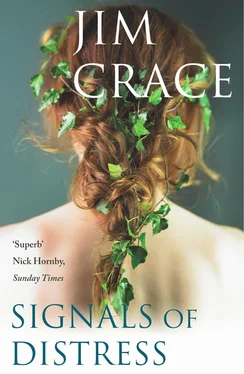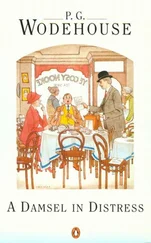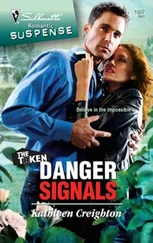Aymer Smith had wet himself. His bladder had been kicked and bruised. When he regained consciousness and found enough strength to limp, barefoot, for help, his trousers were soaked and icy cold. He didn’t look the least like a gentleman who’d encountered some misfortune. He looked more like a beggar in a dirty wagoner’s coat, lame and urinous, and with a black hole for a mouth. He leant against the outer wall of the stable yard. He couldn’t stand without the wall. He tried to call for help, but couldn’t make the words.
The first people to notice him crossed the road. The second — a group of high-collared bucks who’d been at the boxing match — pointed at him, stared for a few moments and stayed away, leaving Aymer in an empty street. At last a carriage stopped a few gates down but, even though Aymer waved his hands, the coachman wouldn’t look at him, and soon had driven off. What could Aymer do to save his life? A man who thinks he’s at death’s door when he’s only got a cold, or who wears a sling when all the bruising on his arm has healed, is not the sort to shrug off such a beating. He must, he thought, have lost several pints of blood already. His liver and his heart had been damaged, he was sure, punctured maybe. His face would be beyond repair. He’d have to hide behind a scarf. He’d be an invalid. Aymer had to save himself, and quickly, or (he imagined) he would bleed to death, or die of cold, or his organs would give out. There was a doctor who had rooms opposite his own in Whittock’s Court. But Whittock’s Court was far away, and uphill. Twenty minutes’ walking even for a healthy man. Two minutes, though, at his wounded pace, would bring Aymer to his brother’s city house. It was just a street away. He had no choice. He’d rather be with Fidia than die. He held on to the wall and, moving one limb at a time, as if he were scaling some treacherous rock face, he traversed along the pavings and the wall until he reached his brother’s wrought-iron gates and pulled the night bell with both hands.
FIDIA WAS horrified. Her nightman, Samuel, had come into the house, wearing his boots and carrying his lantern. Two rules broken. He’d not observed any of his ‘procedures’. If he had something urgent to communicate, he should — in the absence of Matthias and his valet — have summoned Emma, the housekeeper. She would have written a note for Fidia and called a maid to deliver it on a hand tray with a curtsey and a cough. Instead the nightman had knocked roughly on her drawing-room doors while she was entertaining friends and sharing the latest indiscretions over cards and Madeira, and had come into the room, even before she’d rung her bell. What must her friends, Mrs Bellamy and Mrs Whittaker, have made of it?
‘I hope this matters, Samuel,’ she said.
‘So begging you, ma’am, it’s Mr Aymer at the gate.’
‘And selling pudding by the quarter yard?’
‘No, ma’am. I’ve left him in the porter’s room, and he is in no condition to walk a step but wants me to help him come inside.’
What, drunk? she thought. This was embarrassing. Mrs Whittaker could take the gold rosette for gossiping. This would be common knowledge throughout the city, and much embroidered, by breakfast-time.
‘Then leave him there, if he will not come himself,’ she said. She turned towards her cards again as if her brother-in-law was not worth the worry. Whatever his business, it could wait.
‘I cannot leave him, ma’am.’
‘Good heavens, Samuel! You should not bother us. I am entertaining for the moment. Tell him that Matthias is away at the estate this evening and that I will join my husband there tomorrow. So Monday is the earliest that we can spare any time for him. He knows our timetables. Tell him, yes, that we can see him Monday.’
‘He might not last till Monday, ma’am, the state of him.’
Fidia raised her eyebrows for her guests — exasperated and embarrassed, but trying to appear amused. Aymer was a trial for her. She had no patience left. She laughed. She said, ‘The family cuckoo. Can’t leave me in peace for five minutes.’
‘Perhaps you ought to see he is quite well,’ said Mrs Bellamy. Mrs Whittaker nodded in agreement.
‘Oh, I suppose I must disturb myself if we are to enjoy our privacy at all. Excuse me, ladies, while I attend to this,’ said Fidia. She would attend to Samuel, too. He needed reprimanding and reminding that his place was out of doors. ‘Samuel is disposed to overcolouring the simplest things,’ she told her friends. ‘Where is my shawl? I should not want to take a chill …’
Samuel, for once, was not exaggerating. Aymer was a dreadful sight. He looked as if a horse had kicked him in the face. Fidia had to take him in, no question of avoiding it — he was related. What had her brother-in-law done to deserve such a bloody face? She was in little doubt that the beating was deserved. She would have liked to have rapped her little fists on Aymer’s jaw herself, on many occasions, if only to keep him quiet. He wasn’t talking now, though. His breathing was constricted, and he was moaning like a chimney pot. Was he sleeping, or unconscious?
‘Why didn’t you express his situation, Samuel?’ she demanded. ‘You have caused me to seem cruel. I don’t believe that he is drunk at all. What made you speak of it? There is no smell of drink. He is not a drinking man besides, despite his oddities. You had better hurry straight away to Fowlers and fetch the physician, if there is one on a Friday night. Do hurry up. Haste is only vulgar within the house. You may run. And do not thrust your hat back on your head. It is rowdyish.’
A boy was sent to call sedans to take both of her visitors home. Emma made a bed up on the second floor. (‘Not the good sheets, Emma. Mr Smith is bloody, and …’ She would not say what else.) The servants carried Aymer up two flights of stairs, his bare feet covered with a napkin. They put him on the bed, still in his coat, and Emma sat with him until the physician arrived, a little after eleven and a little the worse for drink. Fidia sat in her drawing room, and waited. She couldn’t concentrate to read. It would not do to practise her piano or go to bed. She played patience and finished the three half-glasses of Madeira while, two floors above, Emma and the doctor stripped her brother-in-law, washed him with warm water, applied poultices on his bruises, cauterized his wounds with candle wax and checked his ribs and limbs for breakages. They missed the fractured ankle bone, but that would mend without them anyway and provide him with an interesting limp.
Finally they turned Aymer on his side and laid his face on a surgical dish. The doctor swabbed his mouth out, cleaned the fragments from his tongue and lips, then left him to his dreams.
‘This will be a year of dentistry for him,’ he said to Fidia when he was ready to go. She shuddered at the thought. ‘I think you might sit with Mr Smith for tonight. He will be feverish and certainly will be in pain. I will leave some Greenoughs Tincture for his mouth. And some powdered laudanum. I’ll come again tomorrow. Don’t be too concerned for him, Mrs Smith. Your husband will be whole again in time, other than the teeth, of course …’
‘My husband, sir, is in the country,’ said Fidia, horrified for the second time that night. ‘That gentleman is a relation, that is all, and my concerns for him are only charitable.’ She looked down at her game of cards. She had a decent run of hearts. Her spades had let her down. ‘Will he be fit enough to go back to his rooms tomorrow?’
‘No, Mrs Smith. I beg you, let him rest. He should stay in bed until this time next week. He will be feverish.’ Fidia went across to her piano and struck a single note. A black one. Sharp. She must remember to warn her daughters and her son when they woke that Uncle Aymer was about. They should avoid his room.
Читать дальше












